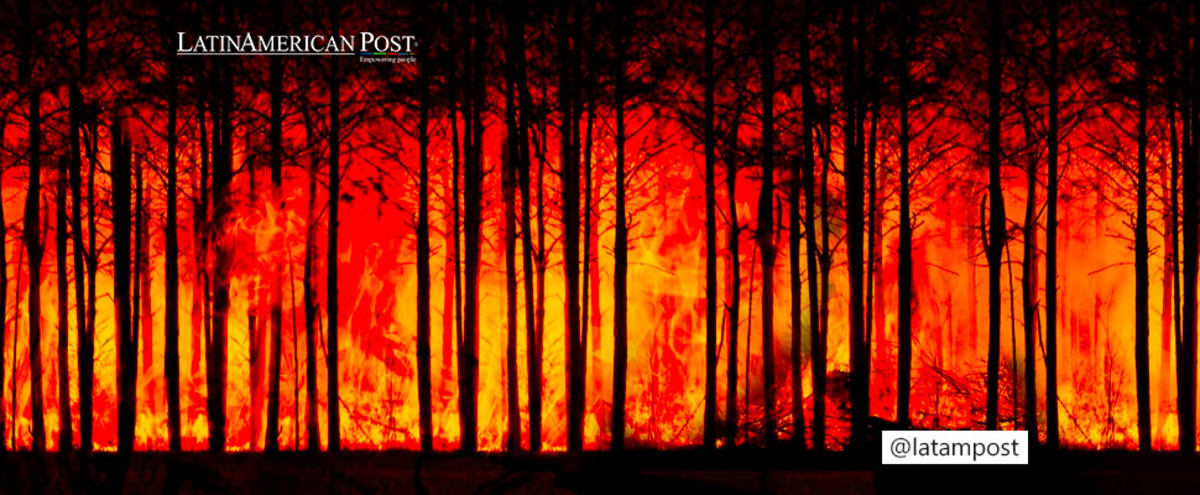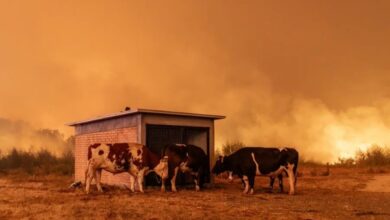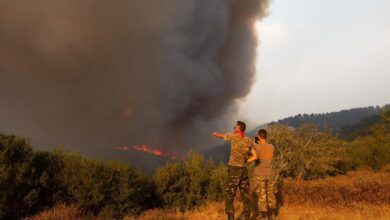Fires in Canada: Is an Era of Fire Coming for the Planet?
The fires in Canada attracted attention because of the pollution that reached New York and a large part of North America. We explain how it is related to climate change and what the consequences will be.

Photo: Pixabay
LatinAmerican Post | María Fernanda Ramírez Ramos
Escucha este artículo
Leer en español: Incendios en Canadá: ¿Viene una era de fuego para el planeta?
The severe forest fires in Canada in the last few weeks attracted global attention. Hundreds of photos that look like something out of a science fiction movie were uploaded to social networks. A vast cloud of smoke dyed the atmosphere orange and filled the air with toxic particles, covering New York and other cities in the United States and Canada. With this, the fires in Canada left millions of people affected by poor air quality, which increased respiratory and asthma symptoms.
Beyond the spectacular nature of the fires in Canada, they accentuate the need to reflect on the impact of large fires, which are becoming increasingly frequent, and their relationship with climate change. These fires in the North American country are the worst in its history, at least of those recorded. Although it is a standard fire season in Canada, this year's fires have enormous dimensions. Their extension was approximately 12 times larger than the average of the last ten years. Different Canadian academics and politicians established a connection between these fires and global warming. However, others avoided doing so. These positions are because several factors influence the occurrence of a fire.
How Much Does Climate Change Influence the Occurrence of Fires?
There is indeed a clear connection between climate change and the increase in the number and severity of forest fires worldwide. Global warming causes temperatures to rise, which creates conditions more conducive to dryness and desiccation of vegetation, making it more flammable. In addition, climate change alters precipitation patterns, leading to more extended droughts and a shortage of soil moisture, facilitating the spread of fires.
Furthermore, environmental degradation, such as deforestation and biodiversity loss, reduces the resilience of ecosystems and increases vulnerability to fire. The same is valid for livestock and extensive crops, which remove native vegetation and make ecosystems more vulnerable to fire. These combined factors contribute to wildfires' increased frequency and intensity in various world regions.
Human development, global warming, and inadequate forest policies lead to more fire spread. It is critical to consider a holistic perspective to address and mitigate the impact of fires in Canada and worldwide. A large fire not only has an effect on its immediate surroundings but on the entire world.
We recommend you read: Infographic: Climate Change: What Would be the Debt of the Countries for their CO2 Emissions?
Consequences of a New "Age of Fire"
If we think of natural phenomena that have caused crises recently, the significant fires in Chile and the Iberian Peninsula in the last 12 months come to mind. The devastating forest fires in Australia and the Amazon also come to mind. Regarding these phenomena, the Washington Post pointed out that "humanity is entering a new era of fire." This was pointed out by University of Arizona professor Stephen Pyne, interviewed by this media, who said the "pyrocene" is beginning. This expert points out that these large fires, such as the one in Canada, are having increasingly more significant consequences, such as increasing the risk of extinction of many species and causing setbacks in the fight against climate change. In fact, according to the New Scientist outlet, the recent fires in Canada in May alone produced almost 55 million tons of carbon emissions.
Forest fires pose various dangers to the environment. These fires can destroy natural habitats, the loss of biodiversity, and the extinction of species. In addition, greenhouse gas emissions during fires contribute to global warming and climate change. Smoke and particulate matter emitted by fires can pollute the air, affecting human health and air quality in distant regions. Fires also cause soil erosion, increasing the risk of landslides and river sedimentation. These events also disrupt natural ecosystems, such as nutrient and water cycles.
Thus, recent fires in various parts of the world are a wake-up call for humanity to do more to manage the risk associated with this phenomenon, which is detrimental to human health and life.




